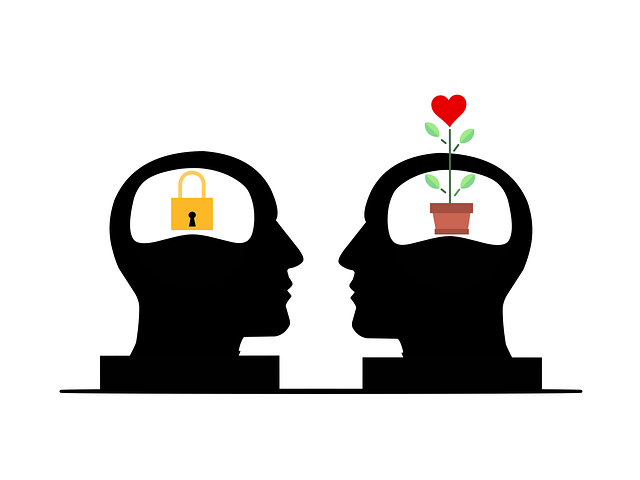Greenwood Village Blended Families Therapy prioritizes cultural sensitivity in mental healthcare, recognizing diverse backgrounds as key to effective treatment. Therapists adapt practices beyond language translation by understanding unique mental health experiences and tailoring interventions accordingly. This involves incorporating specific cultural practices and addressing community-specific challenges, fostering a sense of belonging. To provide culturally responsive care, therapists educate themselves, practice self-care, and encourage clients to engage in tailored mental wellness journaling, enhancing healing and the therapeutic bond.
In today’s diverse society, cultural sensitivity is paramount in mental healthcare. The article explores this critical aspect, focusing on Greenwood Village Blended Families Therapy, a practice catering to unique family structures. It delves into understanding cultural sensitivity, highlighting the challenges and considerations these families face. By implementing cultural competence strategies, therapists can provide effective, tailored support. This approach ensures every client, regardless of background, receives sensitive, competent care, fostering stronger, healthier relationships within these blended families.
- Understanding Cultural Sensitivity in Mental Healthcare
- Challenges and Considerations for Greenwood Village Blended Families Therapy
- Implementing Cultural Competence: Strategies for Effective Practice
Understanding Cultural Sensitivity in Mental Healthcare

Cultural sensitivity in mental healthcare is a critical aspect that ensures effective treatment for a diverse range of clients. It involves understanding and respecting the unique cultural backgrounds, beliefs, and values of individuals seeking therapy. In Greenwood Village Blended Families Therapy, practitioners go beyond language translation to truly embrace and integrate these cultural nuances into their practices. This means recognizing that mental health experiences can vary significantly across different communities, and what works for one person might not work for another due to cultural factors.
By incorporating cultural sensitivity, therapists in Greenwood Village are better equipped to offer tailored interventions. This may include adapting therapeutic techniques, such as incorporating specific cultural practices or addressing unique challenges faced by diverse populations. For example, families from blended backgrounds might require specialized support to navigate complex relationships and dynamics. Social skills training and resilience-building exercises can be culturally adapted to suit these needs, fostering a sense of belonging and understanding in the therapy setting.
Challenges and Considerations for Greenwood Village Blended Families Therapy

Greenwood Village Blended Families Therapy faces unique challenges when addressing cultural sensitivity. In a diverse community, therapists must be attuned to the varied experiences and beliefs within families, especially those with complex backgrounds. Each family’s dynamic is shaped by their cultural heritage, which can influence communication styles, familial roles, and perceptions of mental health. For instance, some cultures may view emotional expression openly while others prioritize reserve, impacting therapy engagement.
To navigate these complexities, therapists in Greenwood Village should offer culturally responsive care. This involves educating themselves about various cultural practices and beliefs to avoid assumptions. Incorporating self-care practices and burnout prevention strategies is also vital for therapists, ensuring they are equipped to support families effectively. Encouraging mental wellness journaling exercises guidance can provide insights into family dynamics and promote open communication, fostering a safe space for all members to express their unique cultural perspectives.
Implementing Cultural Competence: Strategies for Effective Practice

Implementing cultural competence is a cornerstone of effective mental healthcare practice, especially when serving diverse communities like those in Greenwood Village Blended Families Therapy. It involves going beyond basic awareness to actively incorporate an understanding of different cultures and their unique mental health perspectives. One key strategy is fostering self-awareness among therapists through ongoing training and education. This equips them with the skills to recognize and appreciate cultural nuances, biases, and assumptions that might otherwise hinder therapeutic progress.
Additionally, encouraging clients to engage in self-care routine development for better mental health can be significantly enhanced by incorporating culturally sensitive practices. For example, guiding individuals through mental wellness journaling exercises tailored to their cultural backgrounds can provide a safe space to explore emotions and experiences. This personalized approach not only promotes healing but also strengthens the therapeutic bond, ensuring that care is accessible, respectful, and ultimately more effective for all clients, regardless of their cultural heritage.
Cultural sensitivity is an indispensable aspect of mental healthcare, especially in diverse communities like Greenwood Village. As highlighted in this article, understanding and implementing cultural competence, as seen in practices like Greenwood Village Blended Families Therapy, can significantly improve patient outcomes. By recognizing and addressing the unique challenges faced by blended families from various cultural backgrounds, therapists can create a safe and inclusive environment. This, in turn, fosters effective therapy, ensuring that every client receives personalized care that respects their cultural identity.














